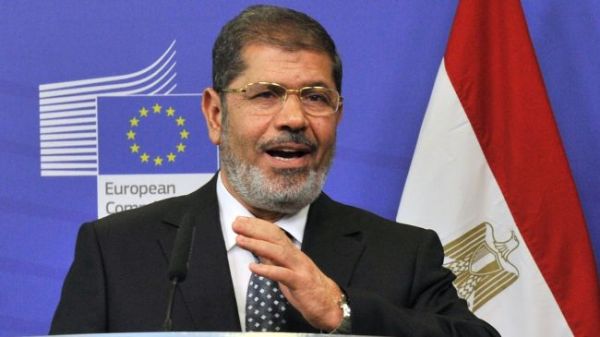Accumulation of Power Makes Mohammed Morsi a Formidable Figure

After securing re-election, one of the pressing situations facing President Barack Obama is the ongoing crisis in the Middle East and one of the major players in the region is Egyptian President Mohammed Morsi.
With Israel and Gaza resuming a war almost four years after the one they fought during the winter of 2008-2009, Morsi and Obama communicated on the phone at least six times in the span of a few days with each functioning as a voice for each of the belligerents, Morsi for Gaza and Obama for Israel. Although religiously and ideologically sympathetic with the Gazans and their military arm, Hamas, Morsi negotiated a ceasefire.
Perhaps feeling he earned political capital for his role in the ceasefire, Morsi made a bold decision regarding his own powers as president.
In a statement read on Egyptian television by a spokesman, Morsi imagines an unencumbered presidency, "The constitutional declarations, decisions, and laws issued by the president are final and not subject to appeal." Also on the table is the possibility of trials of Mubarak-era officials as well as a re-trial of Mubarak himself. The decree, which is described as "temporary," resembles Mubarak's "emergency law" which the dictator used to justify his expansive powers.
The reaction from Egyptians and the US was swift. Thousands of protesters have gathered in Tahrir Square, the public arena in downtown Cairo where the "Arab Spring" resulted in the abdication of the Hosni Mubarak regime that ruled Egypt for thirty years.
In the US, senators John McCain and Carl Levin, two ranking members on the Senate Armed Services Committee, repulsed the usurpation with McCain saying the US must condemn Morsi's actions and Levin warning against having "a democratically-elected autocrat take the place of an undemocratically-elected dictator."
The big question for the US is how it will deal with Morsi moving forward. Morsi was valuable in facilitating the ceasefire, but against the wishes of Washington, the accumulation of power makes him a formidable figure.
The relationship between the US and Egypt has been tenuous during this transfer of power. There have been eruptions of violence in the Sinai Peninsula that has put the Egyptian-Israeli peace on edge and Morsi angered America when he showed relatively little concern when the American embassy in Cairo was stormed on September 11.
There is also a lingering fear that, as a member of the Muslim Brotherhood, Morsi will sympathize with groups like Hamas at the expense of his own national interests and over the wishes of Israel and the US despite the organization's renouncement of violence.
In a timely book review in the Sunday New York Times, Daniel Larison reminds readers that allies serve an important role, but their actions do not necessarily require America to follow along:
"Eisenhower had enough confidence in his own judgments not to be pressured into policies he knew to be mistaken."Eisenhower's handling of the Suez crisis . . . was an impressive example of this quality. Britain, France and Israel had invaded Egypt with the intention of toppling the dictator Gamal Abdel Nasser after he had seized the Suez Canal, but Eisenhower did not confuse backing allies with reflexive support for their mistakes . . . The crisis over the Suez was successfully resolved in part by Eisenhower's refusal to provide assistance to America's friends, which forced them to bear the costs and consequences of their blunder without any hope of being bailed out by Washington."
Much like his predecessor, Morsi may be setting himself up to become a de facto dictator. From the viewpoint of the US, Morsi worked out well because he negotiated peace that helped both the side he sympathizes with, Gaza, as well as America's partner, Israel. If Morsi continues on his current path he could end up as another Mubarak, but his compliance with Washington makes him a tolerable potential ally even if his actions at home are not condoned.
If that happens, he may be a facilitator of American interests, albeit at the expense of Egyptians, and it will be a dynamic Obama and any subsequent American president working with Morsi will have to navigate.




